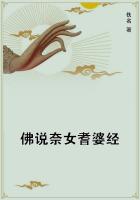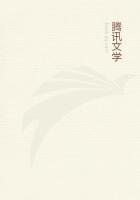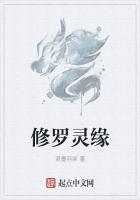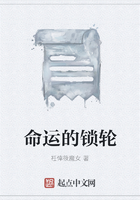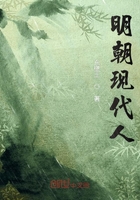The author has not finished yet. Know all ye who read these tales with eye and hand, feel them in the head alone, and love them for the joy they bring you, and which goes to your heart, know that the author having in an evil hour let his ideas, /id est/, his inheritance, go astray, and being unable to get them together again, found himself in a state of mental nudity. Then he cried like the woodcutter in the prologue of the book of his dear master Rabelais, in order to make himself heard by the gentleman on high, Lord Paramount of all things, and obtain from Him fresh ideas. This said Most High, still busy with the congress of the time, threw to him through Mercury an inkstand with two cups, on which was engraved, after the manner of a motto, these three letters, /Ave/. Then the poor fellow, perceiving no other help, took great care to turn over this said inkstand to find out the hidden meaning of it, thinking over the mysterious words and trying to find a key to them. First, he saw that God was polite, like the great Lord as He is, because the world is His, and He holds the title of it from no one. But since, in thinking over the days of his youth, he remembered no great service rendered to God, the author was in doubt concerning this hollow civility, and pondered long without finding out the real substance of the celestial utensil. By reason of turning it and twisting it about, studying it, looking at it, feeling it, emptying it, knocking it in an interrogatory manner, smacking it down, standing it up straight, standing it on one side, and turning it upside down, he read backwards /Eva/. Who is /Eva/, if not all women in one? Therefore by the Voice Divine was it said to the author:
Think of women; woman will heal thy wound, stop the waste-hole in thy bag of tricks. Woman is thy wealth; have but one woman, dress, undress, and fondle that women, make use of the woman--woman is everything--woman has an inkstand of her own; dip thy pen in that bottomless inkpot. Women like love; make love to her with the pen only, tickle her phantasies, and sketch merrily for her a thousand pictures of love in a thousand pretty ways. Woman is generous, and all for one, or one for all, must pay the painter, and furnish the hairs of the brush. Now, muse upon that which is written here. /Ave/, Hail, /Eva/, woman; or /Eva/, woman, /Ave/, Hail. Yes, she makes and unmakes. Heigh, then, for the inkstand! What does woman like best?
What does she desire? All the special things of love; and woman is right. To have children, to produce an imitation, of nature, which is always in labour. Come to me, then, woman!--come to me, Eva!
With this the author began to dip into that fertile inkpot, where there was a brain-fluid, concocted by virtues from on high in a talismanic fashion. From one cup there came serious things, which wrote themselves in brown ink; and from the other trifling things, which merely gave a roseate hue to the pages of the manuscript. The poor author has often, from carelessness, mixed the inks, now here, now there; but as soon as the heavy sentences, difficult to smooth, polish, and brighten up, of some work suitable to the taste of the day are finished, the author, eager to amuse himself, in spite of the small amount of merry ink remaining in the left cup, steals and bears eagerly therefrom a few penfuls with great delight. These said penfuls are, indeed, these same Droll Tales, the authority on which is above suspicion, because it flows from a divine source, as is shown in this the author's ***** confession.
Certain evil-disposed people will still cry out at this; but can you find a man perfectly contented on this lump of mud? Is it not a shame?
In this the author has wisely comported himself in imitation of a higher power; and he proves it by /atqui/. Listen. Is it not most clearly demonstrated to the learned that the sovereign Lord of worlds has made an infinite number of heavy, weighty, and serious machines with great wheels, large chains, terrible notches, and frightfully complicated screws and weights like the roasting jack, but also has amused Himself with little trifles and grotesque things light as zephyrs, and has made also ***** and pleasant creations, at which you laugh directly you see them? Is it not so? Then in all eccentric works, such as the very spacious edifice undertaken by the author, in order to model himself upon the laws of the above-named Lord, it is necessary to fashion certain delicate flowers, pleasant insects, fine dragons well twisted, imbricated, and coloured--nay, even gilt, although he is often short of gold--and throw them at the feet of his snow-clad mountains, piles of rocks, and other cloud-capped philosophers, long and terrible works, marble columns, real thoughts carved in porphyry.
Ah! unclean beasts, who despise and repudiate the figures, phantasies, harmonies, and roulades of the fair muse of drollery, will you not pare your claws, so that you may never again scratch her white skin, all azure with veins, her amorous reins, her flanks of surpassing elegance, her feet that stay modestly in bed, her satin face, her lustrous features, her heart devoid of bitterness? Ah! wooden-heads, what will you say when you find that this merry lass springs from the heart of France, agrees with all that is womanly in nature, has been saluted with a polite /Ave/! by the angels in the person of their spokesman, Mercury, and finally, is the clearest quintessence of Art.
In this work are to be met with necessity, virtue, whim, the desire of a woman, the votive offering of a stout Pantagruelist, all are here.
Hold your peace, then, drink to the author, and let his inkstand with the double cup endow the Gay Science with a hundred glorious Droll Tales.
Stand back then, curs; strike up the music! Silence, bigots; out of the way, dunces! step forward my merry wags!--my little pages! give your soft hand to the ladies, and tickle theirs in the centre in a pretty manner, saying to them, "Read to laugh." Afterwards you can tell them some mere jest to make them roar, since when they are laughing their lips are apart, and they make but a faint resistance to love.


